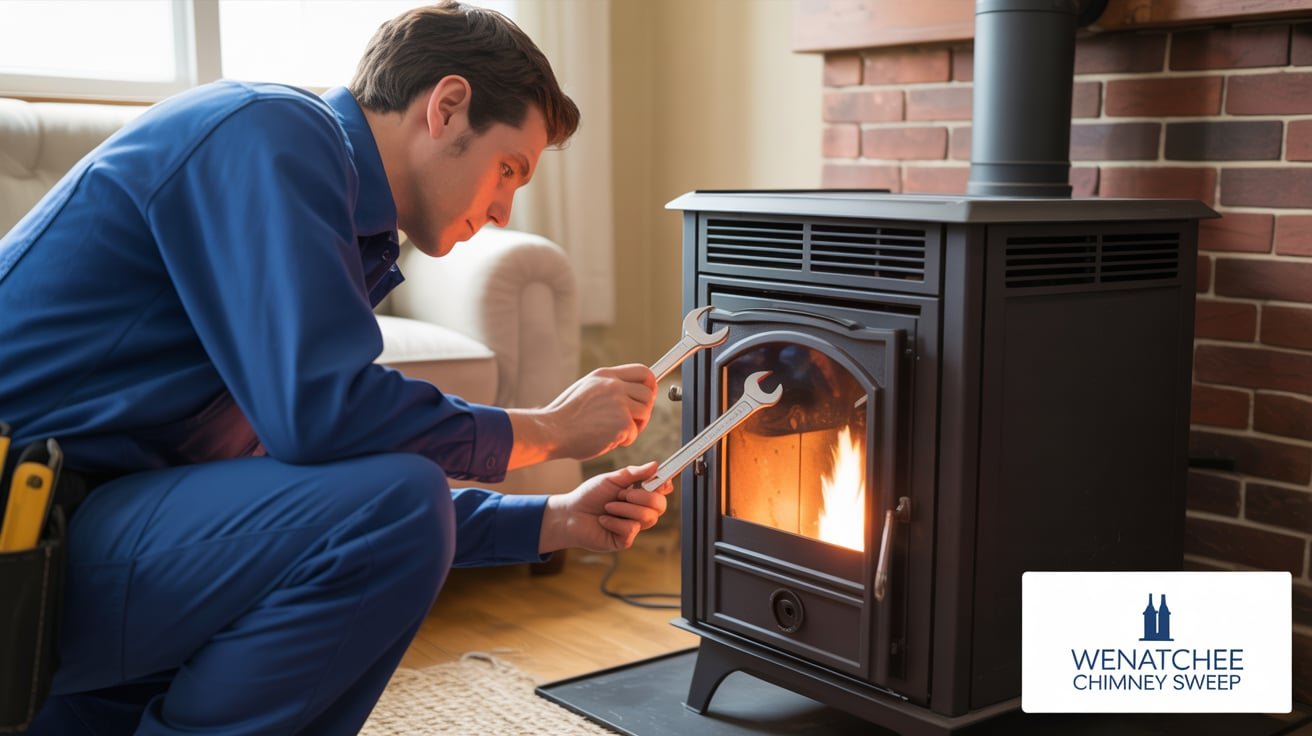Living in Wenatchee, you know how important it is to keep your house warm, especially when winter sneaks in and refuses to leave. Pellet stoves are a popular choice here—they’re efficient, cozy, and can make even the chilliest nights feel inviting. But like anything mechanical, they can act up from time to time. In this guide, I’ll walk you through the most frequent problems folks around Wenatchee face with their pellet stoves, and how brands like Wenatchee Chimney Sweep can help with Pellet Stove Repair when you need it most.
When the Heat Fades: Common Pellet Stove Glitches
Sometimes, you’ll wake up to a room that’s colder than it should be, and your pellet stove is just quietly humming instead of pumping out heat. One of the most frequent culprits is a jammed auger. The auger is the part that moves the pellets from the hopper into the burning chamber, and when it gets clogged up (often by dust or low-quality pellets), nothing burns. It’s a bit like trying to make coffee with a blocked filter—nothing gets through!
Another thing I’ve seen quite a bit is trouble with the ignition. If your stove doesn’t light, it could be a faulty igniter or even just a buildup of ash that’s blocking the spark. And then there’s the blower fans—these keep the air moving, but when they get dirty or wear out, you’ll notice the room just isn’t warming up like it used to. Listening for unusual rattling or squealing is a good clue something’s off.
Ashes and Airflow: Keeping Things Clean
Pellet stoves love being clean, and neglecting this can lead to all sorts of headaches. If you notice a lot of smoke or a weak flame, chances are your air vents or combustion chamber are packed with ash. When this happens, your stove can’t “breathe,” so it burns less efficiently and may even shut down as a safety precaution.
Cleaning out your stove regularly (and making sure the exhaust vent isn’t blocked by outside debris or bird nests) can save you a lot of grief. But if things look complicated or you smell something strange, calling in a pro like Wenatchee Chimney Sweep is a much safer bet than poking around yourself.
Power Problems and Error Codes
These days, most pellet stoves have control panels that flash codes or beep when something’s wrong. Power surges, faulty sensors, or worn-out control boards are all common issues—especially after a wild Wenatchee winter storm. If you see error codes you don’t recognize or the stove shuts down randomly, don’t panic. Sometimes, a simple reset or checking your power source can do the trick. If not, it might be time to call in a technician who knows how to read those mysterious codes.
“A pellet stove is like a trusty friend in winter—treat it well with regular care and it’ll keep you warm no matter how cold it gets outside.”
| Key Feature | Safety | Cost | Emergency Service |
|---|---|---|---|
| Efficient heating with minimal fuel waste | Regular cleaning prevents fire risks | Repairs often cheaper than replacements | Local technicians available for urgent repairs |
| Programmable thermostats and smart controls | Proper venting stops carbon monoxide leaks | Parts pricing varies by brand and model | 24/7 service for breakdowns during winter |
| Eco-friendly and easy to maintain | Routine checks keep families safe | Maintenance reduces future expenses | Quick response prevents extended downtime |
Frequently Asked Questions
Q1: Why is my pellet stove not igniting?
A: Most often, a pellet stove that won’t light is dealing with a worn-out igniter or a buildup of ash and debris blocking the spark. Sometimes, using damp or poor-quality pellets can also make ignition difficult. It’s a good idea to clean out the burn pot and check that your pellets are dry. If the problem keeps happening, the igniter might need replacing.
Q2: How often should I clean my pellet stove?
A: For most Wenatchee homes, cleaning the burn pot and ash pan once a week during heavy use is a smart move. Give the interior parts and vent pipes a more thorough cleaning every couple of months. Annual deep cleaning and inspection by a professional, like Wenatchee Chimney Sweep, helps keep everything running safely and smoothly.
Q3: What does it mean if my stove is making strange noises?
A: Weird sounds like rattling, squealing, or grinding usually mean a part is loose, dirty, or wearing out. Fans and augers are the usual suspects. Don’t ignore unusual noises—catching them early can prevent bigger, more expensive issues down the road.
Q4: Can I repair my pellet stove myself?
A: While simple cleaning and basic troubleshooting are safe for most homeowners, repairs involving electrical parts, motors, or fuel systems are best left to a certified technician. This ensures your stove stays efficient and your home stays safe.
